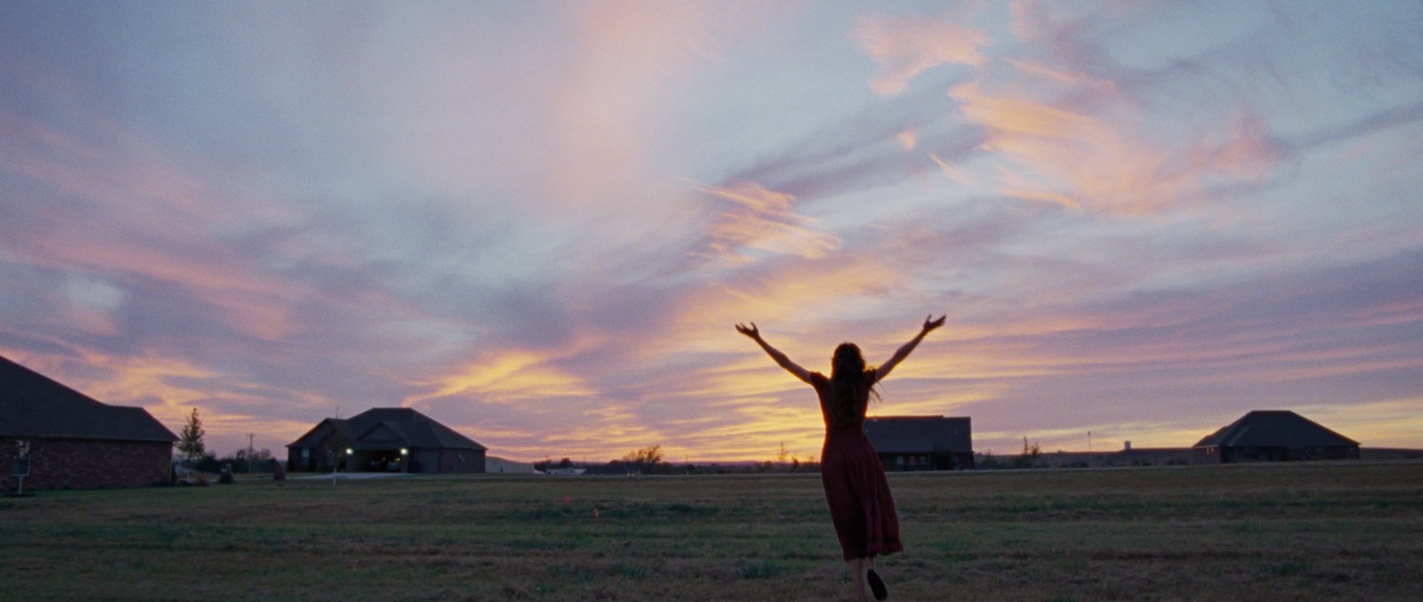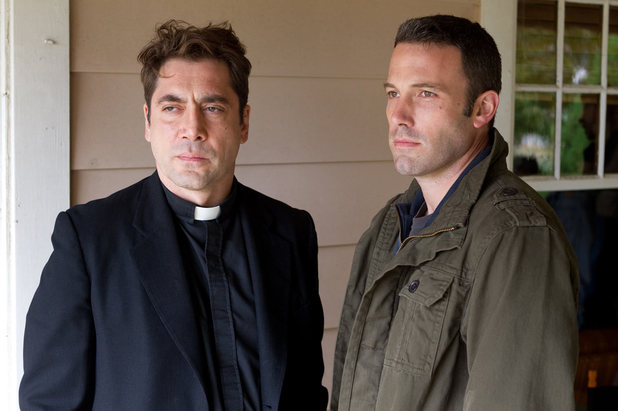
Terence Malick's To the Wonder is a pure visual experience, and if you go into it with that mindset, there's a chance you will appreciate the beautiful imagery and long wordless sequences, in the style of a silent film, perhaps. It's meant to evoke feeling, and tell the story through pure emotion, the kind that varies over the course of a relationship when two people fall in love. For some, especially Malick fans, this kind of storytelling will work on you, for others it's bound to be a frustrating experience.
To the Wonder wants to tell the story of a relationship, and evoke the many ebbs and flows of love- you experience the joy, passion, sadness and rapid changing of emotion that occurs as a romance plays out between Olga Kurylenko and Ben Affleck. The movie belongs to Kurylenko though, as she holds the screen with a captivating magnetism- she has all the otherworldly airiness of the best Malick heroines, joining Sissy Spacek, Q'orianka Kilcher and Jessica Chastain before her. Whenever she's in front the camera she compels your attention like nothing else, and poor Ben Affleck gets left by the wayside. He has barely three lines in the movie, often filmed from the back of his head or the side- he's obviously a stand-in for Malick and we're meant to be seeing her through his eyes, but the refusal to give him any kind of a character to play prevents us from fully investing in this relationship. We only ever see her conflicted emotions, attitudes, and internal struggles- and while that makes her character fascinating and intriguing, the other half of this story is lost in the experience.

It also has the unfortunate effect of conveying Affleck's bewilderment in the role. I think he was trying, but completely at a loss as to how to play this part or what he was supposed to be acting. Given that occurrence, it may have been more effective to have even less of him than what we do see, even though he's top billed (and his part was already heavily gutted, I'm sure). In the middle of the film when he embarks on a rebound romance with Rachel McAdams (another limited actress), following a split from Kurylenko, both actors seem utterly befuddled on the screen, and there's a scene where both are staring at an open field that nearly took me out of the film, as I was wondered if either one knew what they were supposed to be doing in this moment.
Luckily, the vast majority of the movie focuses on Kurylenko, who does seem to have a perspective on her character, and the same goes for Javier Bardem in a small but significant role as a priest experiencing a crisis of faith. In his limited screentime he commands our attention and his existential crisis feels authentic and immediate. Malick's trademark narration applies in this film both to Kurylenko and Bardem, but rarely Affleck, which is probably another obstacle holding us at length from his character.

This film was extremely polarizing among critics when released back in April, and that's understandable, as there is no attempt at conventional narrative whatsoever, and as such, it's bound to be limited in its appeal. But Malick fans in particular will be primed to be more open to the idea of storytelling by mood evocation, and the performance of Kurylenko carries you through it, along with the gorgeous cinematography- no one else can make Texas look so good, or feel so vivid and real; Jack Fisk's production design alone is like another character in the film. So there's more than enough to recommend here to a certain audience, and there are moments of ecstatic feeling and wondrous beauty that would be familiar to many Malick lovers, and shouldn't be missed in any case.
* *

